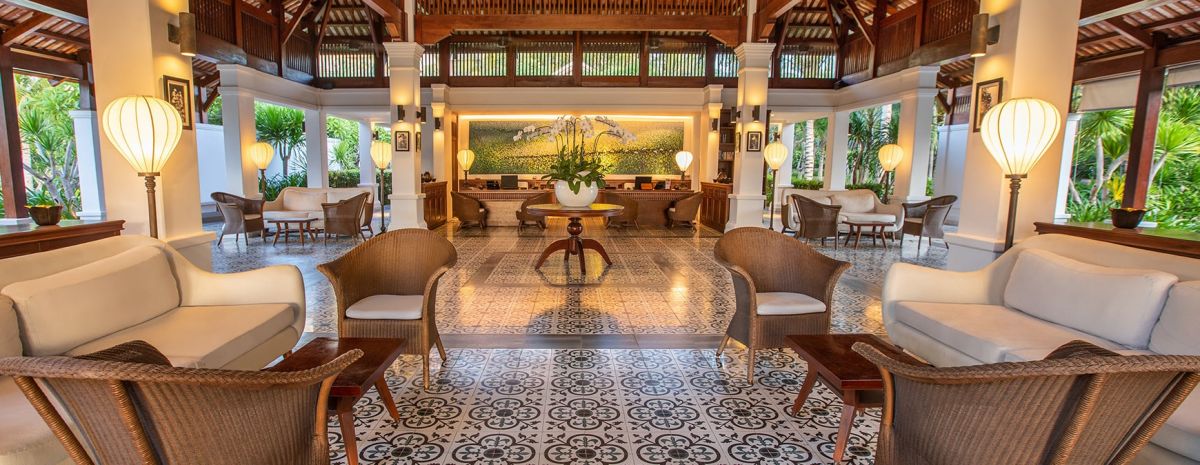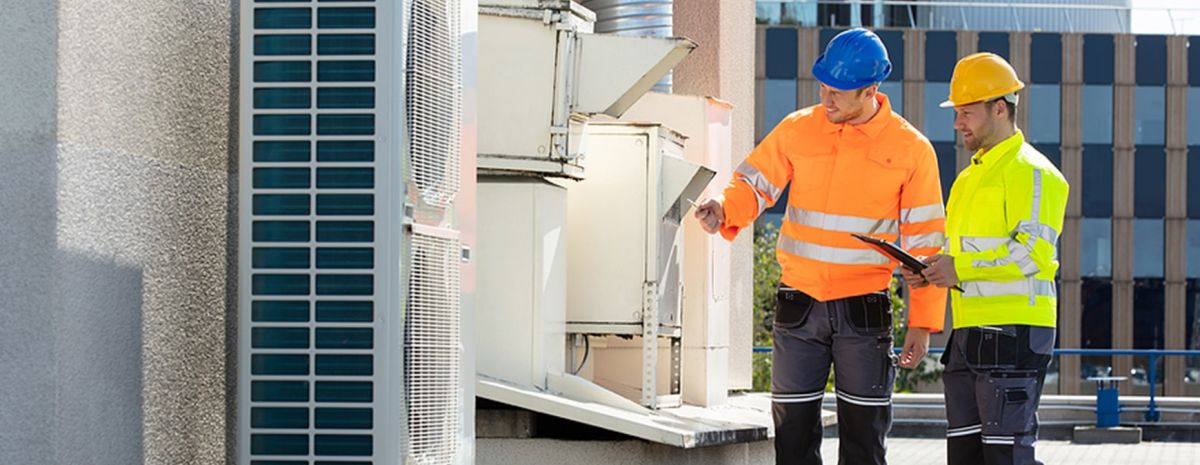RSI is a Great Training Option for Everyone
Learn more about how we can prepare you to advance your career.
When you stay at a hotel, do you expect the indoor climate to be comfortable? If so, then you have the HVAC industry to thank. The heroes responsible for your comfortable stay are HVAC technicians.1 These techs work on different types of HVAC/R systems in the hospitality industry.
If you’re wondering where you might be able to work after finishing your HVAC classes, hospitality is one industry to consider.
See what kinds of HVAC systems hotels use and the importance of this equipment to the industry.
What Kinds of HVAC Systems Do Hotels Use?
Hotels usually use three types of HVAC systems:
- Packaged terminal air conditioners (PTACs)
- Vertical terminal air conditioners (VTACs)
- Variable refrigerant flow (VRF) units
Get the details on each one below.
Get Started on the Path to a New Career
Fill out our form to learn how we can help you change your life.
Packaged Terminal Air Conditioners (PTAC)2
Hotels use these self-contained A/C units for individual rooms. PTAC units are usually installed below the window or against a wall and typically do not use outside air to cool or heat the room. This means that standard PTAC units only recycle air from within the room. 3
At this point, you might be wondering how PTAC units work. First, the compressor within the HVAC unit pumps refrigerant to the coils. Air passes over these coils, becomes cold and is blown into the room for cooling. The heat and humility the coils extract from the air is blown outside via the exterior grille.3
The above process is for cold air. There are two ways that PTAC units can be used to heat a room:
- Heat Pump: a reversal of the PTAC cooling process, which heats coils using refrigerant.3
- Electric Heat: an electric heating element is located near the unit’s vents, which heats air as it passes over the element.3
Vertical Terminal Air Conditioners (VTAC)2
VTAC units are compact systems that are built into the wall. They have the capacity to heat and cool multiple rooms.3
VTAC units are typically installed in a closet-like corner that takes in air from below and discharges it through a top-duct to heat or cool the room(s). They use the same cooling and heating processes that PTAC systems use.3
A typical VTAC closet is 30″ x 30,” including the clearance required.3
Variable Refrigerant Flow (VRF)2
For variable refrigerant flow (VRF) systems, there is a central outdoor condensing unit that can be easily installed on the roof or at grade. The outdoor unit connects to up to 24 fan coils, which are located in each room. Some great places to assign fan coils are entry foyers or bathrooms because they are a good place for duct connections and maintenance access.3
For cooling, the VRF condensers pump cold refrigerant to each fan coil unit. The air passes over the coils and blows cold air through the ducts.
To heat rooms, the VRF condenser works as a heat pump, which creates hot refrigerant to be sent to each fan coil. The air passes over the coils and blows heat through the ducts.3
VRF systems with heat recovery can work in both heating and cooling mode. This enables heat to be redirected to other rooms, rather than rejected. This means that heat from one room can be brought into another room without engaging the main condenser.3
Why Is HVAC Important in Hotels?

Hotels often rely on guest satisfaction to determine if they are providing excellent service. Among the comments and reviews guests leave online, one topic seems to occur more often than others: room temperature and indoor air quality.4
What Are Some Tips for HVAC Techs Working in Hotels?
Hotels are in constant need of working air conditioning and heating. Even so, hotels often become their own worst enemy because they try to cut costs by having their own maintenance team work on their HVAC systems. This can result in work that is inconsistent in quality.
This can present an opportunity for qualified HVAC technicians.1 If you find yourself convincing hotel managers of the benefits of replacing or upgrading an HVAC system, you may want to try the following:
- Explain the benefits of newer equipment, including energy efficiency.1
- Make a five-year or ten-year plan and replace the most outdated or problematic units first.1
There are also easy side-jobs that HVAC technicians could perform:
- Make sure the HVAC temperature settings for locations like lobbies and offices are programmed for minimal system use during slower times when there will be less foot traffic.1
- Check that the water temperature outside of the kitchen, such as in laundry rooms, is set lower because it isn’t regulated by as stringent of codes.1
Where Else in the Hospitality Industry Is HVAC Important?
Now that you know more about HVAC in hotels, you may wonder where else it is needed in the hospitality industry. HVAC is also important in hospitals, especially with the emergence of micro-hospitals and the industry trend of upgrading to newer heating and cooling equipment.5
Additional Sources
1https://www.achrnews.com/articles/130922-harrowing-hospitality-hotels-need-heaps-of-hvac-help
2http://www.hotelsuniversity.com/hotel-hvac-systems-what-are-my-options-part-1/
3http://www.hotelsuniversity.com/hotel-hvac-systems-what-are-my-options-part-2/
4https://www.hoteliermagazine.com/hoteliers-seek-efficiency-comfort-hvac-systems/
5https://www.achrnews.com/articles/140287-hospitality-trends-give-hvac-contractors-new-selling-points
This blog has been labeled as archived as it may no longer contain the most up-to-date data. For a list of all current blog posts, please visit our blog homepage at https://www.rsi.edu/blog/




